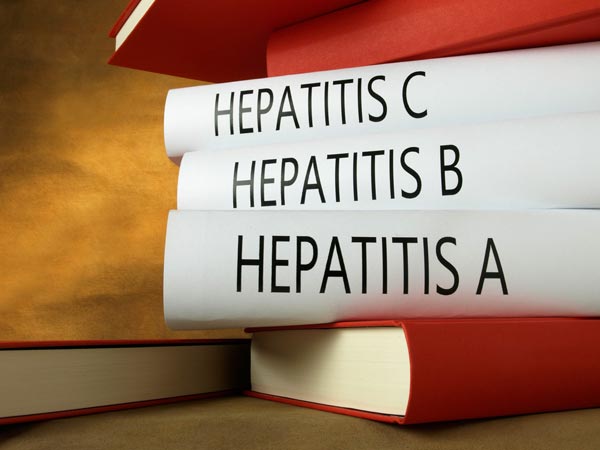Just In
- 33 min ago

- 1 hr ago

- 3 hrs ago

- 11 hrs ago

Don't Miss
- Movies
 Devara Part 1: Jr NTR To Groove With Pooja Hegde In Janhvi Kapoor-Starrer Actioner For A Special Song; Details
Devara Part 1: Jr NTR To Groove With Pooja Hegde In Janhvi Kapoor-Starrer Actioner For A Special Song; Details - Sports
 ONE Friday Fights 59 Results: Yamin Beats Ouraghi In Freak Stoppage, Yodthongthai Topples Petnamngam
ONE Friday Fights 59 Results: Yamin Beats Ouraghi In Freak Stoppage, Yodthongthai Topples Petnamngam - News
 Bengaluru Traffic Alert: Avoid These Roads On April 20 Between 1 PM To 7 PM
Bengaluru Traffic Alert: Avoid These Roads On April 20 Between 1 PM To 7 PM - Automobiles
 Ford Mustang 60th Anniversary Package – Limited To Just 1,965 Units
Ford Mustang 60th Anniversary Package – Limited To Just 1,965 Units - Technology
 Confirmed List of Products Launching at Xiaomi Smarter Living 2024
Confirmed List of Products Launching at Xiaomi Smarter Living 2024 - Finance
 Daily Relative Strength Index RSI In A Bullish Mode of This Pharma Stock; Buy For TP Rs 635-685
Daily Relative Strength Index RSI In A Bullish Mode of This Pharma Stock; Buy For TP Rs 635-685 - Education
 Exam Pressure Does Not Exist; Studying Punctually is Crucial; Says Aditi, the PSEB 2024 Topper
Exam Pressure Does Not Exist; Studying Punctually is Crucial; Says Aditi, the PSEB 2024 Topper - Travel
 Journey From Delhi To Ooty: Top Transport Options And Attractions
Journey From Delhi To Ooty: Top Transport Options And Attractions
World Hepatitis Day: Facts About Viral Hepatitis
Hepatitis is an inflammatory condition of the liver and is mostly caused by viral infection. Viral hepatitis has been categorised in hepatitis A, B, C, D and E. Hepatitis A is always acute and short-term, whereas hepatitis B, C and D mostly turn out to be chronic and long-term. Hepatitis E is usually acute too, but it can be dangerous in pregnant women.
Infective types of viral hepatitis can be spread through contaminated food and water. Hepatitis A and E fall in this category. However, hepatitis B and C are called blood-borne (contaminated through blood and body fluid).

As WHO (World Health Organisation) is gearing up to celebrate World Hepatitis Day on July 28, we bring you some less-known facts about hepatitis.
Hepatitis A
It
is
caused
by
a
virus,
hepatitis
A
virus
or
HAV.
The
virus
mostly
spreads
through
contaminated
food
or
water.
This
is
the
most
common
form
of
hepatitis.
This
disease
is
highly
transmissible
through
the
faecal-oral
route.
The
symptoms
include
fatigue,
mild
fever,
body
pain,
joint
ache
and
jaundice.
Though
most
of
the
patients
recover
over
time
naturally,
they
need
appropriate
diet
and
supportive
care
during
the
recovery
period.
Sometimes,
it
can
take
serious
turn
and
result
into
some
complications
that
need
specialised
care.
Hepatitis B
This liver disease is mostly transmitted through infectious body fluid, like blood, vaginal secretion or semen that already contains HBV (hepatitis B virus). Symptoms might vary from person to person and many do not develop any symptoms even for months and decades.
The ones who become chronically affected with HBV, are more likely to grow conditions like liver cirrhosis, liver failure and cancer. Effective vaccinations are available to keep this syndrome at bay. Once diagnosed, it can be kept under control with medications.
Hepatitis E
Transmitted through food and water, this condition is similar to hepatitis A. However, this can be more acute and chronic and needs immediate treatment. It can cause severe complications in pregnant women. In Europe, this contaminated pork meat and infected water from well or reservoir. This form of hepatitis is most commonly found in the Middle East, Asia, Central America and Africa. Poor sanitation and contamination in water supply mainly pave the way for this type.

Hepatitis C
HVC
(hepatitis
C
virus)
is
responsible
for
the
onset
of
this
particular
type.
Direct
contact
with
infected
body
fluids
can
result
in
hepatitis
C
infection.
Hepatitis
C
transmission
occurs
through
unsterilised
needles.
Using
contaminated
needles
for
injecting
drugs,
tattooing,
body
piercing
or
acupuncture,
increases
the
risk
of
being
affected
by
this
type.
Though
there
is
no
available
vaccine
to
prevent
hepatitis
C,
it
can
be
cured
with
a
very
effective
oral
medicine
that
needs
to
be
taken
for
3
to
6
months.
This
type
of
hepatitis
also
runs
higher
risk
of
developing
liver
injury,
liver
cirrhosis
and
liver
cancer.
If you face any underlying symptoms of hepatitis, it is advisable to get a screening done, before the infection starts causing damage to your liver.
-
 pregnancy parenting14 Children Infected With HIV, Hepatitis After Blood Transfusion In UP Hospital: How Did It Happen?
pregnancy parenting14 Children Infected With HIV, Hepatitis After Blood Transfusion In UP Hospital: How Did It Happen? -
 pregnancy parentingExpert On Hepatitis & Pregnancy: Protect Your Baby For Life
pregnancy parentingExpert On Hepatitis & Pregnancy: Protect Your Baby For Life -
 healthWorld Hepatitis Day: Expert Article On The Role Of Hepatitis In The Rising Incidence Of Liver Cancer
healthWorld Hepatitis Day: Expert Article On The Role Of Hepatitis In The Rising Incidence Of Liver Cancer -
 pregnancy parentingWorld Hepatitis Day 2023: Why Every Pregnant Woman Should Get Tested for Hepatitis
pregnancy parentingWorld Hepatitis Day 2023: Why Every Pregnant Woman Should Get Tested for Hepatitis -
 wellnessWorld Hepatitis Day 2022: Expert Opinion On Ayurvedic Management Of Hepatitis
wellnessWorld Hepatitis Day 2022: Expert Opinion On Ayurvedic Management Of Hepatitis -
 wellnessFirst Death Of A Child Reported In Mexico Due To Mysterious Severe Hepatitis: Things To Know
wellnessFirst Death Of A Child Reported In Mexico Due To Mysterious Severe Hepatitis: Things To Know -
 diabetesHepatitis Awareness Month 2022: What Is The Link Between Diabetes And Hepatitis?
diabetesHepatitis Awareness Month 2022: What Is The Link Between Diabetes And Hepatitis? -
 kidsExplained: The Pathogen That Could Be Causing Hepatitis Outbreak In Kids
kidsExplained: The Pathogen That Could Be Causing Hepatitis Outbreak In Kids -
 kidsExpert Opinion: Hepatitis Cases On The Rise Among UK Children – Could COVID Have A Role To Play?
kidsExpert Opinion: Hepatitis Cases On The Rise Among UK Children – Could COVID Have A Role To Play? -
 wellness8 Ways To Live A Quality Life With Hepatitis
wellness8 Ways To Live A Quality Life With Hepatitis -
 disorders cureWorld Hepatitis Day 2021: What Is Hepatitis? Everything You Need To Know About This Condition
disorders cureWorld Hepatitis Day 2021: What Is Hepatitis? Everything You Need To Know About This Condition -
 wellnessWorld Hepatitis Day 2021: Healthy Diet For Hepatitis B Patients
wellnessWorld Hepatitis Day 2021: Healthy Diet For Hepatitis B Patients


 Click it and Unblock the Notifications
Click it and Unblock the Notifications



